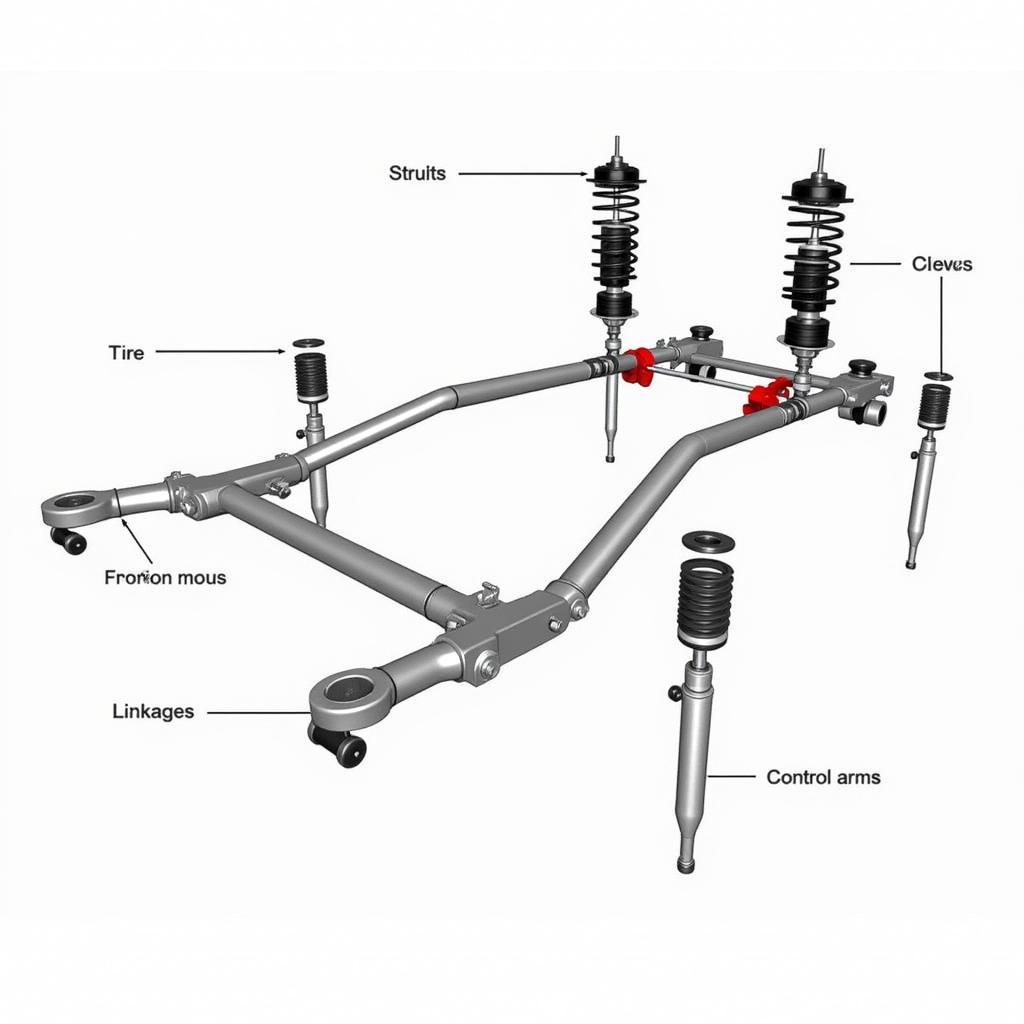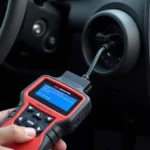Understanding the intricacies of your car’s suspension system can be daunting, but when it comes to ensuring a smooth and safe ride in Essex, a thorough car suspension diagnostic is crucial. Whether you’re experiencing a bumpy ride, unusual noises, or uneven tire wear, a professional car suspension diagnostic can pinpoint the root cause and get you back on track.
Why is Car Suspension Diagnostic Important?
Your car’s suspension system plays a vital role in providing stability, handling, and overall comfort while driving. It absorbs shocks from uneven road surfaces, ensures your tires maintain optimal contact with the road, and allows you to steer and brake effectively.
Over time, suspension components can wear down due to constant use, harsh driving conditions, or even age. Ignoring these issues can lead to:
- Compromised handling and control: Worn-out suspension parts can significantly affect your car’s ability to handle corners and maintain stability, especially at higher speeds.
- Uneven tire wear: A misaligned suspension system can cause tires to wear unevenly, leading to premature replacement and reduced fuel efficiency.
- Reduced braking efficiency: A poorly maintained suspension system can increase braking distances and affect your car’s overall braking performance.
- Uncomfortable ride: Worn shocks and struts can result in a bumpy and uncomfortable ride, especially on uneven roads.
What Happens During a Car Suspension Diagnostic in Essex?
A comprehensive car suspension diagnostic in Essex typically involves a trained technician meticulously inspecting the following components:
Shocks and Struts:
These components are responsible for absorbing shocks from bumps and dips in the road. The technician will check for leaks, wear, and proper functioning.
Springs:
Springs support the weight of your vehicle and help maintain ride height. The technician will inspect them for damage, sagging, or breakage.
Control Arms and Bushings:
Control arms connect the wheels to the frame and allow for up and down movement. Bushings, which are rubber components within the control arms, cushion the movement. The technician will check for wear, looseness, and damage.
Tie Rod Ends and Ball Joints:
These components connect the steering system to the wheels and allow for turning. The technician will inspect them for play, wear, and damage.
Wheel Bearings:
Wheel bearings allow the wheels to rotate smoothly. The technician will listen for any unusual noises and check for play, indicating wear.
Signs You Might Need a Car Suspension Diagnostic
While regular maintenance checks are recommended, certain signs indicate the need for immediate car suspension diagnostics:
- Pulling or drifting to one side: If your car veers off course without steering input, it could be a sign of suspension misalignment or worn-out components.
- Excessive bouncing after hitting a bump: Worn-out shocks or struts may fail to dampen the bouncing motion effectively, resulting in an excessively bouncy ride.
- Nose-diving during braking: If your car dips forward excessively when braking, it could signify worn-out front suspension components.
- Squeaking or knocking noises: Unusual noises, particularly when going over bumps or turning, often indicate worn-out suspension parts.
Finding a Reliable Car Suspension Diagnostic Service in Essex
When seeking car suspension diagnostics in Essex, look for a reputable garage or service center with experienced technicians and specialized equipment. Don’t hesitate to ask about their diagnostic process, the cost involved, and any warranties offered on repairs.
Conclusion
Regular car suspension diagnostics are crucial for maintaining a safe and enjoyable driving experience in Essex. By addressing suspension issues promptly, you can ensure optimal vehicle performance, extend the lifespan of your tires, and enjoy a smoother ride. Remember, early detection and repair are always more cost-effective than dealing with major suspension problems down the line.


